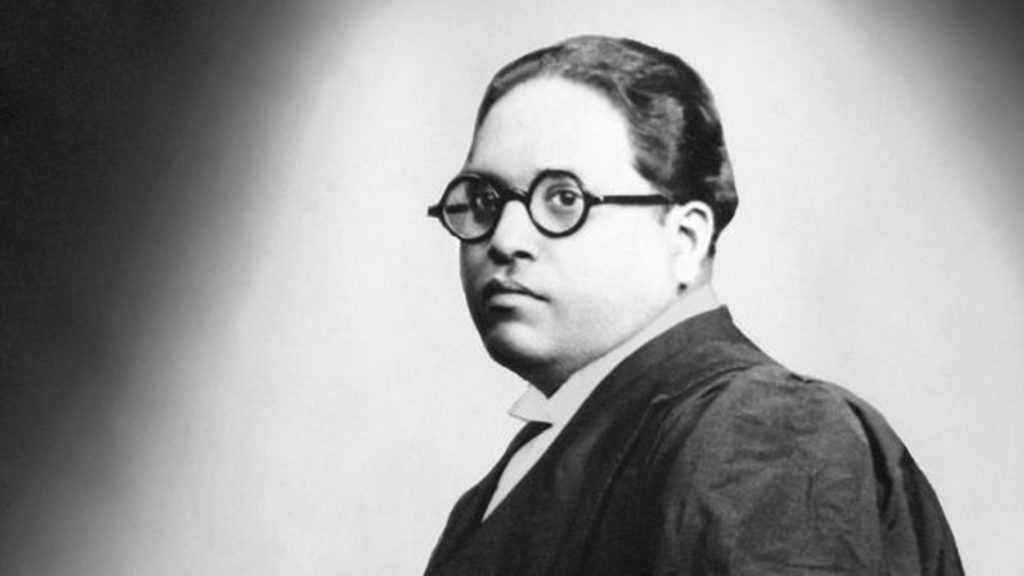
What is Ambedkarite ideology?
Babasaheb Ambedkar left behind vast writings and speeches and it is our duty to go back to his writings and speeches and think through his ideas, his vision, and his methods to bring change in ourselves and the society. However, such studies are going on all over India and there are an increasing number of individuals and groups studying Babasaheb Ambedkar. This is a very positive sign as the engagement with his ideas and thought the process is very critical to transforming not only the individuals but the societies as well. But at times, there is also confusion over what constitutes “Ambedkarite ideology” and what is it that is “essential and critical elements of Babasaheb Ambedkar’s ideology”.
Let us be clear at the outset that the ideology of Babasaheb Ambedkar is a “complex of interrelated ideas” to bring a phrase out of Carson’s small but profound paper on Dewey’s concept of democracy. In her paper, she tried to understand and finally conclude that mere using the “democracy” without underscoring the what it refers can be a propaganda and that whenever we talk of democracy we must spell out its definition and in Dewey’s works, she categorized 30 definitions of democracy. In her scheme, the democracy is also a “complex of interrelated ideas”. Babasaheb Ambedkar was a student of John Dewey in the Columbia University and was very inspired by his teacher to the extent that he commented once that “he owes his intellectual life to John Dewey”.
Babasaheb Ambedkar is the father of Indian democracy in the true sense. If we study all the 30 definitions of the democracy in Carson’s paper, we begin to understand that together they form a “total” concept and covers all the aspects of human life, be it political, social, economic, cultural, or intellectual. When we look at the life, thoughts, and mission of Babasaheb Ambedkar, he wanted to bring “total” revolution in India which will encompass all the aspects of human life; social, political, economic, cultural, intellectual, artistic, and scientific. His quest was for the total radical revolution in Indian society.
Therefore, while we define, or even attempt to define Ambedkarite ideology, we should be clear that it is not a single idea of change, a single of transformation, or a single idea of revolution. We can easily define various aspects of “Ambedkarite ideology” by bringing out definitions from what discipline we are looking at his quest for revolution, but in the end, we have to go beyond mere analysis of his ideas and reduce them to workable definitions, but we will also need to synthesize the ideas into a “total” concept which will have a forward moving quality and this is what we need to ensure if we have to bring in total revolution in India.
Going beyond John Dewey, Babasaheb Ambedkar saw democracy as a way to bring non-violent (bloodless) revolution and thus opened the possibility of the peaceful social, political, and economic transformation.
As the movements run in the name of Babasaheb Ambedkar tend to become fissiparous and in the end it may not be a wrong thing to have many centres of the Ambedkarite movement, but what we need is an evolving container that will ensure that the movements run in the name of Babasaheb Ambedkar do not become isolated and caught up in one of the “definitions” or “aspects” of “Total” Ambedkarite movement. We may have to work in different areas according to our dispositions and beats of our minds and bends of the minds of people who have like-mindedness, but at the same time, we have accepted and acknowledge and find the ways to communicate and work in tandem with others who are working on other “aspects” of the Ambedkarite movement. Unless we bring synthesis in the movement, we cannot create a powerful momentum that would destroy the monster of caste.
Author – Mangesh Dahiwale, Human Rights Activist


👍👍👍
Righteous Human may be a citizen of a constitutional republic country. The citizen of a constitutional republic country may be a Legislative/Executive/Judicial Human of the constitutional republic country.
Legislative , Executive ,Judicial and Righteous Humans : Human components of a constitutional republic country,Like India